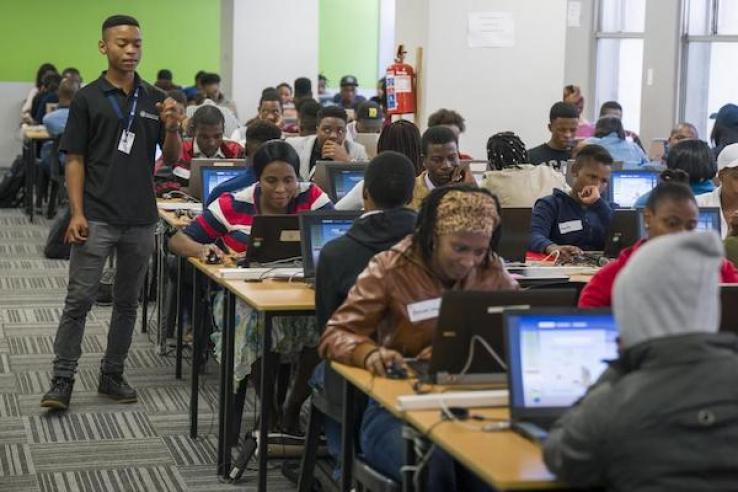Displaying 391 - 405 of 7727
Blog
One of the goals of COP26 is to mobilize climate finance, but funding alone cannot guarantee effective climate mitigation and adaptation strategies. Because technological and policy innovations do not always achieve their desired effects in the field, climate financing should be informed by real...
Event
This webinar explored the potential for education interventions to improve social inclusion at scale, with a focus on studies in partnership with education ministries from different settings across Europe.
Update
J-PAL updates
J-PAL North America announces that Laura Feeney and Vincent Quan, who previously led the center’s research, training, and policy teams, are now serving as the new co-executive directors of the organization.
Blog
Read how J-PAL Africa and the Harambee Youth Employment Accelerator have partnered over the last three years to design, test, and scale job search tools to address South Africa's youth unemployment problem.
Person
Justine is a Postdoctoral Associate at J-PAL with DigiFI. She completed her PhD at the Paris School of Economics in 2021.
Blog
GEA has completed its second full funding round, supporting nineteen research teams to produce evidence that addresses critical knowledge gaps on what works to support women’s economic agency. Read about the funded projects.
Update
J-PAL updates
In the November 2021 Newsletter, we highlight ideas around how climate finance can support evidence generation, three key lessons on informing policy with evidence in Africa, and evidence for medical debt relief.
Resource
Basic page
Blog
In the second installment of the IFII blog series, we discuss the importance of applying a gender lens to measuring impact and share practical considerations for measuring empowerment.
Evidence to Policy Case Study
Case study
J-PAL staff and affiliates contributed to the creation of the Office of Evaluation Sciences (OES) to improve the capacity of US federal agencies to build and use rigorous evidence and continue to partner with OES to aid this mission.
Evidence to Policy Case Study
Case study
Researchers applied insights from earlier Covid-19 messaging research to launch a large-scale Facebook messaging campaign and corresponding evaluation reaching more than 35 million people.
Evaluation
By running a Facebook public health campaign, researchers found that social media messaging from doctors and nurses reduced holiday travel and subsequent Covid-19 infection rates. This suggests that social media campaigns may be an impactful and cost-effective way to slow the spread of Covid-19 and enact behavior change.
Evaluation
Diarrhea is a leading cause of death in children under the age of 5, but adding small amounts of chlorine into water can treat water and prevent a large number of these deaths. Providing free dispensers for chlorine to treat water reduced under-five mortality. Children living in villages with dilute chlorine solution dispensers were 63 percent less likely to die relative to the comparison group.
Person
Astuti Kusumaningrum (Tuti) is a returning Research Manager at J-PAL South East Asia where she works on the projects Reach Up and Learn and Disaster Index Insurance.
Blog
On Tuesday, November 9, Craig McIntosh (Professor of Economics at University of California, San Diego) and co-director of the Agricultural Technology Adoption Initiative (ATAI), shared evidence from one of the largest market information experiments ever conducted. Jenna Fahle, CEGA Agriculture...







